#dismantle racism
Text
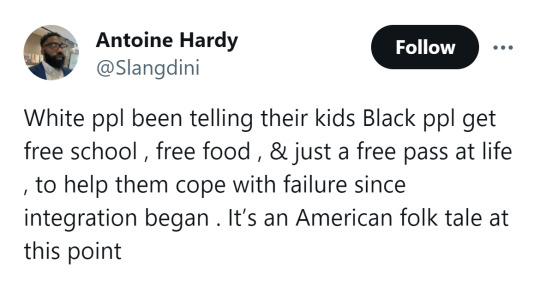
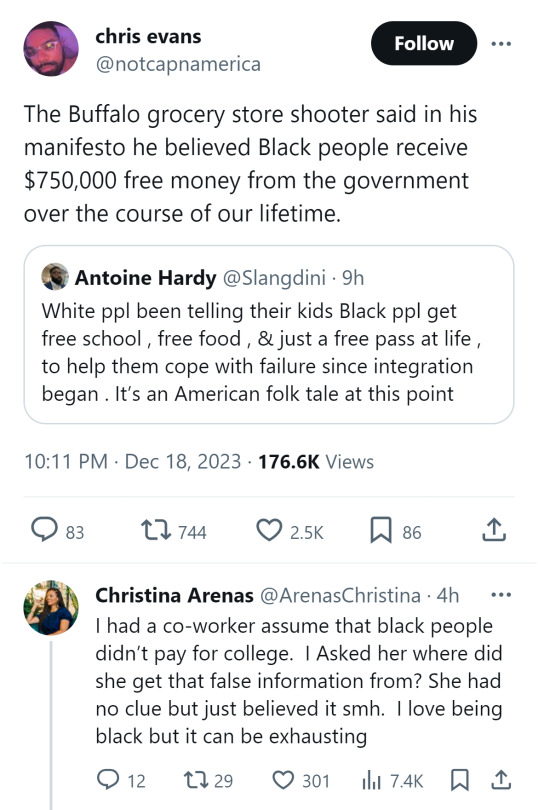

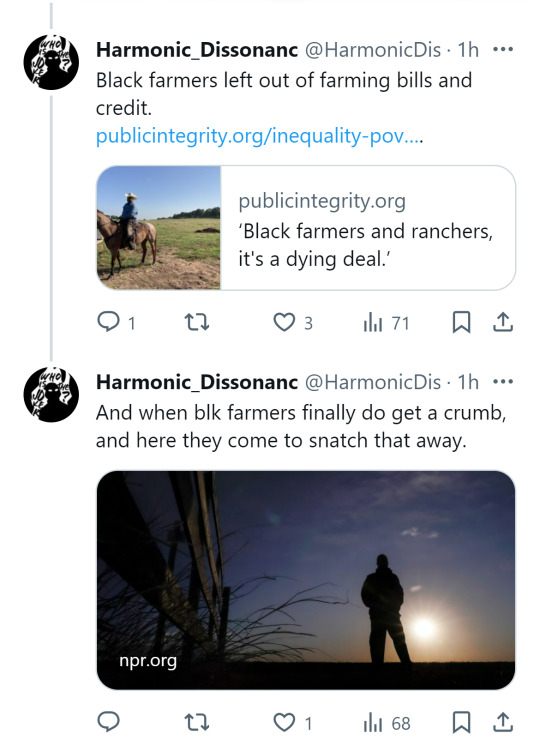
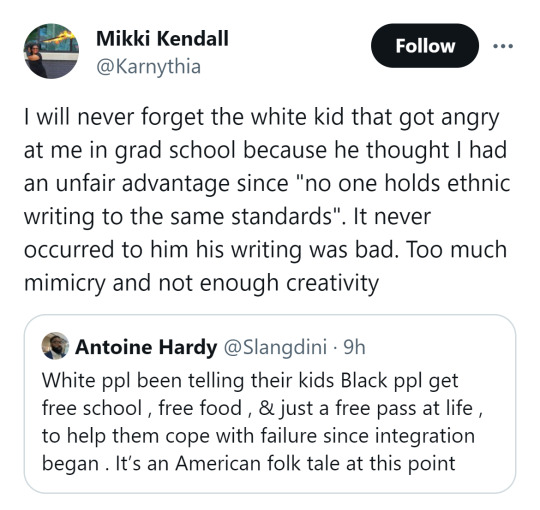

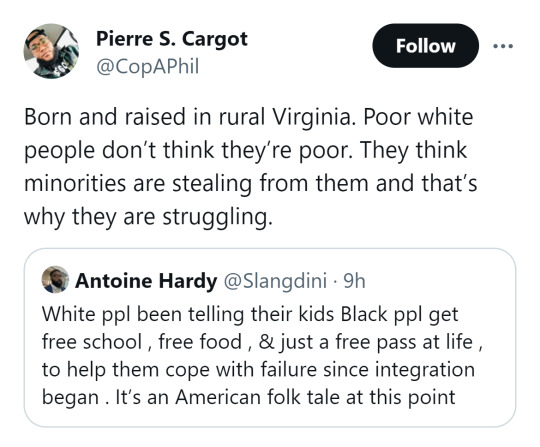

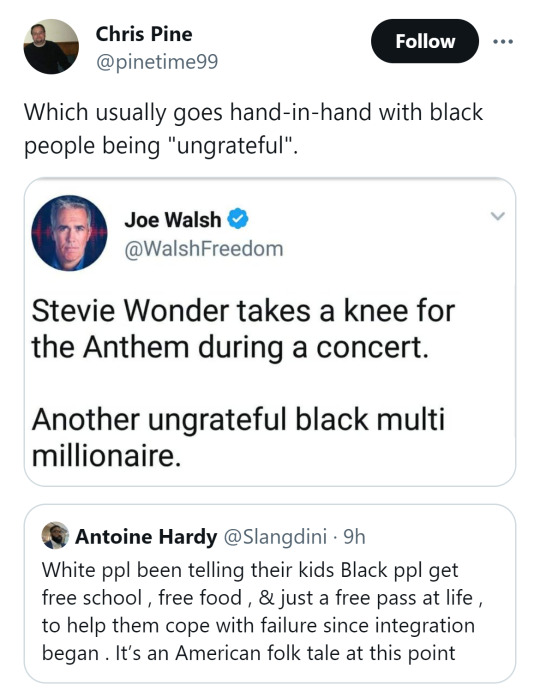
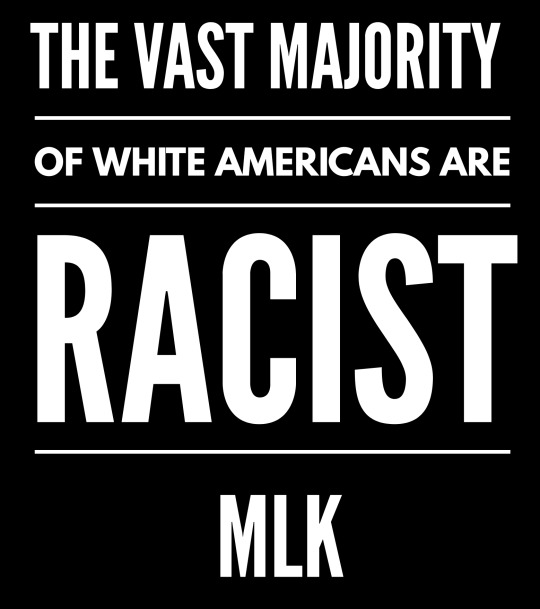
#white supremacy#racism#social justice#equality#end hate#anti-racism#racial equality#stop racism#no to hate#dismantle racism
9K notes
·
View notes
Text

#unitarianuniversalism#uu#progressivefaith#inclusivefaith#interconnectedness#spirituality#unitarian#belovedcommunity#personalgrowth#mindfulness#lgbtq#black lives matter#asian lives matter#trans lives matter#protect trans kids#protect trans lives#protect asian lives#protect black women#generation#dismantle racism#no to hate#racial equality#alwaysbewoke#end hate
5 notes
·
View notes
Text
I wear it
On my skin
The shame you
Taught me to believe
Was appropo
I hear it in my bones
The creaking of your
Stupendous weapons of blood and war
On which my ancestors
Were merely cargo
I speak your language
And eat your food
Because my history was beaten
From my people
With whips
In beads of sweat and blood
Tattooed into my brain
Byway of your epics
Of colorism
I am literally
What you made me
Kept as pets
But hated for our presence
Hated the blood you could not
Chase from the marrow
From the flesh
Of a people well versed
In the music of their ancestors
And the drumbeats of our hearts
More intriguing still
Is the fairness
You cannot give
To a people
Condemed by their captors
Help me to understand
Why still
One hundred and fifty years
Later you
Are still bad at chess?
You cannot understand
Why our blood sings stories
Of anger and pain
Upon deaf ears
Why we run from traffic stops
In the middle of the night
When seeing through our eyes
Our ancestors can only see dogs and torches
Oh pray you
Lesrn someday
Why you cannot be so oppressed
Whisper to God with bloodied lips
And stinging backs that
You hope your children remain
At your side.
For this long out
They still take ours
Broken necks and high trees
Are the generational trauma of my people
But we are uppity when we speak such truths?
#thisoneislong#dismantle racism#racisim#protect black women#black lives matter#domesticterrorism#prose#spilled prose#prose poem#prose poetry#poetry#poets on tumblr#poetsandwriters#original poem#black history#history#generational trauma#trauma#violence#brown skin#colorism#bloodhound#blood#hate
13 notes
·
View notes
Text

one thing is certain: we need to nuke england from orbit
#racism tw#sinophobia tw#you had a specifically racialised servant class on your military ships and only dismantled it because you were TOO RACIST TO LET THEM WORK?
1K notes
·
View notes
Text
I’m fucking begging people to please read about the Characteristics of White Supremacy Culture
It is a collectively, intersectionally articulated analytical tool to describe and help dismantle cultural aspects that prop up and propagate white supremacy.
Contributed to by many many amazing community activists, scholars, teachers, and regular people but spearheaded in this format by Tema Okun.
WHAT: WHITE SUPREMACY CULTURE COMES AFTER ALL OF US
“We are all swimming in the waters of white supremacy culture. We are all navigating this culture, regardless of our racial identity. We are not all affected in the same ways – some of us are encouraged to join and collude without awareness that an invitation has been extended, some are invited to participate at the cost of separating ourselves from our communities and families, some are shamed because we can never fully join no matter how hard we try, some are denied any invitation in order to be targeted or exploited or violated.
Because white supremacy culture is the water we swim in, we inevitably internalize the messages about what this culture believes, values, and considers normal. We absorb these messages as individuals and as a collective. As a result, white supremacy culture shapes how we think and act, how we make decisions and behave. As a result, white supremacy culture reminds us over and over again, sometimes out loud, sometimes in a whisper, that white is right and that there is a right kind of white”
https://www.whitesupremacyculture.info/what-is-it.html
PLEASE AVOID WEAPONIZING THIS TOOL:
“I want to offer a cautionary plea here about weaponizing this list.
This website, the article, the information offered here is a tool, an analytical tool designed to help us better understand white supremacy culture. The intention is to help us understand the water in which we are all swimming so that we can collaboratively work together to build and sustain cultures that help us thrive as communities and individuals. Cultures that are not based on abuse of power and accumulation of profit. Cultures that are based on interdependence, justice, and respect for each other and the earth and wind and sun and stars. Cultures that embody the belief that we all do better when we all do better.
This does not mean we can't hold each other accountable (another word for supporting each other to be our best selves), set boundaries when people have not learned yet to take responsibility for themselves, apologize and take responsibility ourselves when we cause harm, and continue to grow and learn how to be with each other even when we are getting on each other's last nerve.
I will say that white supremacy wants us to attack each other as the problem. As we fight with and among each other, we fail to identify the actual problem. An instruction we might hold to is to attack the problem, not the people, not each other (thank you Cal Allen). Of course, sometimes our behavior is a problem, our conditioning is a problem, and then we can, when we are able, help each other through. And if we cannot, we look to others who have the capacity to help or be in relationship as they look to us when they are out of capacity and we are able to show up.
***THE PILLARS OF WHITE SUPREMACY CULTURE***
>>FEAR:
White supremacy culture's number one strategy is to make us afraid. When we are afraid, we lose touch with our power and become more easily manipulated by the promise of an illusory safety.
White supremacy culture cultivates our fear of not belonging, of not being enough. Living in fear that we are not enough, white supremacy culture teaches us to fear others (or hate others) in an attempt, sometimes overt, sometimes unspoken, to prove to ourselves that we are ok. An easy way to prove we are ok is to point the finger at all those who are not. An easy way to belong to each other is to hate and fear all the others who do not (thank you Cristina Rivera Chapman).
READ MORE ON “FEAR” HERE
>>URGENCY:
The cultural habit of applying a sense of urgency to our every-day lives in ways that perpetuate power imbalance while disconnecting us from our need to breathe and pause and reflect.
The point here is to both acknowledge actual urgency without creating an undue and superficial sense of urgency. People need food, housing, health care, attention right now; often there is no time to wait. The damage starts when we transfer a sense of urgency to everything we do, refuse to make time to rest (even and particularly in the midst of truly urgent situations), and begin to feel that taking a pause is a betrayal of our commitment.
The irony is that this imposed sense of urgency serves to erase the actual urgency of tackling racial and social injustice.
>Reinforces existing power hierarchies that use the sense of urgency to control decision-making in the name of expediency
>Privileges those who process information quickly (or think they do)
>Sacrifices and erases the potential of other modes of knowing and wisdom that require more time (embodied, intuitive, spiritual)
>Encourages shame, guilt, and self-righteousness to manipulate decision-making
>Reinforces the idea that we are ruled by time, deadlines, and needing to do things in a "timely" way often based on arbitrary schedules that have little to do with the actual realities of how long things take, particularly when those "things" are relationships with others
READ MORE ON “URGENCY” HERE
>>ONE RIGHT WAY:
(Intertwined with Perfectionism, Objectivity, & Paternalism)
The cultural belief there is one right way to do things and once people are introduced to the right way, they will see the light and adopt it. This belief is connected to the belief that the right way is the "perfect" way and therefore perfection is both attainable and desirable.
When a person or group does not adapt or change to "fit" the one right way, then those defining or upholding the one right way assume something is wrong with the other, those not changing, not with.
Similar to a missionary who sees only value in their beliefs about what is good rather than acknowledging value in the culture of the communities they are determined to "convert" to the right way of thinking and/or the right way of living
READ MORE ON “ONE RIGHT WAY,” “PATERNALISM/QUALIFIED,” “PERFECTIONISM,” & “OBJECTIVITY” HERE
>>PATERNALISM/QUALIFIED:
(Intertwined with Perfectionism, Objectivity & One Right Way)
>Those holding power control decision-making and define things (standards, perfection, one right way)
>Those holding power assume they are qualified to (and entitled to) define standards and the one right way as well as make decisions for and in the interests of those without power
>Those holding power often don’t think it is important or necessary to understand the viewpoint or experience of those for whom they are making decisions, often labeling those for whom they are making decisions as unqualified intellectually, emotionally, spiritually, or physically
READ MORE ON “ONE RIGHT WAY,” “PATERNALISM/QUALIFIED,” “PERFECTIONISM,” & “OBJECTIVITY” HERE
>>PERFECTIONISM:
(Intertwined with Paternalism, Objectivity, & One Right Way)
Perfectionism is the conditioned belief and attitude that we can be perfect based on a standard or set of rules that we did not create and that we are led to believe will prove our value. Perfectionism is the conditioned belief and attitude that we can determine whether others are showing up as perfect and demand or expect that they do so. White supremacy culture uses perfectionism to preserve power and the status quo. As long as we are striving to be perfect according to someone else's rules, we have less energy and attention to question those rules and to remember what is truly important.
We can be perfectionist in our social justice circles when we assume or believe there is a perfect way to do something and we know what it is. When we look more closely at our own perfectionism, we see that the perfectionist tendency is always in service of our own power or the current power structure. We might be fighting power out in the world but when we are perfectionist about how we do that, we preserve a toxic power structure internally.
>Mistakes are seen as personal, i.e. they reflect badly on the person making them as opposed to being seen for what they are – mistakes; making a mistake is confused with being a mistake, doing wrong with being wrong
>Little time, energy, or money is put into reflection or identifying lessons learned that can improve practice, in other words there is little or no learning from mistakes, and/or little investigation of what is considered a mistake and why.
>A tendency to identify what’s wrong; little ability to identify, name, define, and appreciate what’s right
>Often internally felt, in other words the perfectionist fails to appreciate their own good work, more often pointing out their faults or ‘failures,’ focusing on inadequacies and mistakes rather than learning from them; the person works with a harsh and constant inner critic that has internalized the standards set by someone else
READ MORE ON “ONE RIGHT WAY,” “PATERNALISM/QUALIFIED,” “PERFECTIONISM,” & “OBJECTIVITY” HERE
>>OBJECTIVITY:
(Intertwined with Paternalism, Perfectionism, & One Right Way)
The belief that there is such a thing as being objective or ‘neutral.’ The belief that emotions are inherently destructive, irrational, and should not play a role in decision-making or group process
>Assigning value to the "rational" while invalidating and/or shaming the "emotional" when often if not always the "rational" is emotion wrapped up in fancy logic and language
>Requiring people to think in a linear (logical) fashion and ignoring or invalidating/shaming those who think in other ways
>Impatience with any thinking that does not appear ‘logical’ or 'rational' in ways that reinforce existing power structures; in other words, those in power can be illogical, angry, emotional without being disregarded while those without power must always present from a 'rational' position
>Refusal to acknowledge the ways in which 'logical' thinking and/or decision-making is often a cover for personal emotions and/or agendas often based in fear of losing power, face, or comfort
READ MORE ON “ONE RIGHT WAY,” “PATERNALISM/QUALIFIED,” “PERFECTIONISM,” & “OBJECTIVITY” HERE
>>EITHER/OR & THE BINARY:
(Propped Up By Perfectionism & Urgency)
Cultural assumption that we can and should reduce the complexity of life and the nuances of our relationships with each other and all living things into either/or, yes or no, right or wrong in ways that reinforce toxic power.
>Positioning or presenting options or issues as either/or — good/bad, right/wrong, with us/against us.
>Little or no sense of the possibilities of both/and.
>Trying to simplify complex things, for example believing that poverty is simply the result of lack of education.
>A strategy used by those with a clear agenda or goal to push those who are still thinking or reflecting to make a choice between ‘a’ or ‘b’ without acknowledging a need for time and creativity to come up with more options.
>A strategy used to pit oppressions against each other rather than to recognize the ways in which racism and classism intersect, the ways in which both intersect with heterosexism and agism and other categories of oppression.
READ MORE ON “EITHER/OR & THE BINARY” HERE
>>DENIAL:
(Intertwined with Defensiveness, Propped Up By Individualism)
White supremacy culture encourages a habit of silence about things that matter
>Claiming the right to define what is and what is not racism.
>Insisting that white supremacy and racism require intent. Attempting to separate intent from impact in order to claim that if racism is not intended, then it is not happening.
>Refusing to consider or acknowledge the historical legacy of white supremacy and racism and the structural nature of racial disparities. Rewriting, reframing, or omitting histories to erase or downplay racism.
>Insisting that individually or collectively, a person or group is free from racialized conditioning, leading to statements like “I don’t see color,” and “we’re all the same.”
>Erasing intersectionality - generalizing about a whole group without recognizing the ways in which class, gender, sexuality, religion, age, dis/ability, and other identities inform our individual and collective experiences.
>Denying what another person is saying about the ways in which white supremacy and/or racism are showing up in an interaction or space.
>A pattern that often has a white person with different levels of power denying what a Black, Indigenous or Person of Color or a whole community is saying about their experience of racism.
READ MORE ABOUT “DENIAL” & “DEFENSIVENESS” HERE
>>DEFENSIVENESS:
(Intertwined with Denial, Propped Up By Individualism & Either/Or & Binary)
>People respond to new or challenging ideas with objections or criticism, making it very difficult to raise these ideas.
>People in the organization, particularly those with power, spend a lot of energy trying to make sure that their feelings aren’t getting hurt, forcing others to work around their defensiveness rather than addressing them head-on. At its worst, they have convinced others to do this work for them.
>Because of either/or and binary thinking, those in power view and/or experience criticism as threatening and inappropriate (or rude).
>White people targeted by other oppressions express resentment because they experience the naming of racism as erasing their experience; closely linked to either/or/binary thinking.
>White people spend energy defending against charges of racism instead of examining how racism might actually be happening.
>An oppressive culture where people are afraid to speak their truth.
READ MORE ABOUT “DENIAL” & “DEFENSIVENESS” HERE
>>RIGHT TO COMFORT:
(Intertwined with Fear of Conflict)
Our cultural assumption that I or we (or the ones in formal and informal power) have a right to comfort, which means we cannot tolerate conflict, particularly open conflict. This assumption supports the tendency to blame the person or group causing discomfort or conflict rather than addressing the issues being named.
>Scapegoating those who cause discomfort, for example, targeting and isolating those who name racism rather than addressing the actual racism that is being named
>Demanding, requiring, expecting apologies or other forms of "I didn't mean it" when faced with accusations of colluding with racism
>Feeling entitled to name what is and isn't racism
>White people (or those with dominant identities) equating individual acts of unfairness with systemic racism (or other forms of oppression).
READ MORE ABOUT “RIGHT TO COMFORT” & “FEAR OF CONFLICT” HERE
>>FEAR OF (OPEN) CONFLICT:
(Intertwined with Right to Comfort)
Our cultural assumption that I or we (or the ones in formal and informal power) have a right to comfort, which means we cannot tolerate conflict, particularly open conflict. This assumption supports the tendency to blame the person or group causing discomfort or conflict rather than addressing the issues being named.
>Emphasis or insistence on being polite; setting the rules for how ideas or information or differences of opinion need to be shared in order to be heard (in other words, requiring that people "calm down" if they are angry when anger often contains deep wisdom about where the underlying hurt and harm lies)
>Equating the raising of difficult issues with being impolite, rude, or out of line; punishing people either overtly or subtly for speaking out about their truth and/or experience;
>When someone raises an issue that causes discomfort, the response is to blame the person for raising the issue rather than to look at the issue which is actually causing the problem
>Pretending or insisting that our point of view is grounded in the "rational" or the intellectual when we are in fact masking our emotions with what appear to be rational or intellectual arguments.
>Labeling emotion as "irrational" or anti-intellectual or inferior, which means failing to recognize the importance of emotional intelligence;
READ MORE ABOUT “RIGHT TO COMFORT” & “FEAR OF CONFLICT” HERE
>>INDIVIDUALISM:
(Intertwined with Perfectionism, Qualified, One Right Way, Defensiveness, & Denial)
Our cultural story that we make it on our own, without help, while pulling ourselves up by our own bootstraps, is a toxic denial of our essential interdependence and the reality that we are all in this, literally, together.
>Failure to acknowledge any of the ways dominant identities - gender, class, sexuality, religion, able-bodiedness, age, education to name a few - are informed by belonging to a dominant group that shapes cultural norms and behavior
>Valuing competition more highly than cooperation; or where collaboration is valued, little time or resources are devoted to developing skills in how to collaborate and cooperate
>For white people: a culturally supported focus on determining whether an individual is racist or not while ignoring cultural, institutional, and systemic racism; the strongly felt need by many if not most white people to claim they are "not racist" while their conditioning into racism is relentless and unavoidable
>Desire for individual recognition and credit with failure to acknowledge how what we know is informed by so many others
>Isolation and loneliness
>For white people: seeing yourselves and/or demanding to be seen as an individual and not as part of the white group;
>For BIPOC people: individualism forces the classic double bind when BIPOC people are accused of not being "team players" - in other words, punishment or repercussions for acting as an individual if and when doing so "threatens" the team
>Little experience or comfort working as part of a team, which includes both failure to acknowledge the genius or creativity of others on the team and a willingness to sacrifice democratic and collaborative process in favor of efficiency; see double bind for BIPOC people above
I'm the Only One
(or he/she/they are):
>An aspect of individualism, the belief that if something is going to get done "right," ‘I’ have to do it
>Connected to the characteristic of "one right way," the belief that "I" can determine the right way, am entitled and/or qualified to do so, in isolation from and without accountability to those most impacted by how I define the right way
>Little or no ability to delegate work to others, micro-management
>Based in deep fear of loss of control, which requires an illusion of control
>Putting charismatic leaders on pedestals (or positioning yourself as a charismatic leader on a pedestal); romanticizing a leader (or yourself) as the center of a movement, idea, issue, campaign
>Hiding or covering up the flaws of a leader (or your flaws) in fear that the organization, movement, effort cannot survive
>Defining leadership as those most in front and most vocal (thank you Cristina Rivera-Chapman for these last four bullets)
READ MORE ABOUT “INDIVIDUALISM” HERE
>>PROGRESS IS MORE:
(Intertwined with Quantity over Quality)
The cultural assumption that the goal is always to be/do/get more and be/do/get bigger. This leads to an emphasis on what we can "objectively" measure - how well we are doing at being/doing/getting more - as more valuable than the quality of our relationships to all living beings.
>Assumption that the goal is to grow - add staff, add projects, or serve more people regardless of how well they can serve them; raise more money, or gain more influence and power for its own sake - all without regard to the organization's mission or especially the people and/or living beings that the organization is in relationship with
>Valuing those who have "progressed" over those who "have not" - where progress is measured in degrees, grades, money, power, status, material belongings - in ways that erase lived experience and wisdom/knowledge that is invisibilized - tending, cleaning, feeding, nurturing, caring for, raising up, supporting (thank you Bevelyn Ukah)
>A narrow focus on numbers (financial, people, geography, power) without an ability to value processes (relationships), including cost to the human and natural environment
>Gives no value, not even negative value, to its cost; for example, increased accountability to funders as the budget grows in ways that leave those served exploited, excluded, or underserved as we focus on how many we are serving instead of quality of service or values created by the ways in which we serve
>Little or no ability to consider the cost of growth in social, emotional, psychic, embodied, spiritual, and financial realms
>Focus on getting bigger (in size, transactional power, numbers) leading to little or no ability to consider the cost of getting big in social, emotional, psychic, embodied, spiritual, and financial realms (thank you Bevelyn Ukah)
READ MORE ABOUT” QUANTITY OVER QUALITY” & “PROGRESS IS MORE” HERE
>>QUANTITY OVER QUALITY:
(Intertwined with Progress Is More)
The cultural assumption that the goal is always to be/do/get more and be/do/get bigger. This leads to an emphasis on what we can "objectively" measure - how well we are doing at being/doing/getting more - as more valuable than the quality of our relationships to all living beings.
>Most or all resources directed toward producing quantitatively measurable goal
>Things that can be counted are more highly valued than things that cannot, for example numbers of people attending a meeting, newsletter circulation, money raised and spent are valued more than quality of relationships, democratic decision-making, ability to constructively deal with conflict, morale and mutual support
>Little or no value attached to process in the internalized belief that if it can’t be measured, it has no value
>discomfort with emotion and feelings
>little or no understanding that when there is a conflict between content (the agenda of the meeting) and process (people’s need to be heard or engaged), process will prevail (for example, you may get through the agenda, but if you haven’t paid attention to people’s need to be heard, the decisions made at the meeting are undermined and/or disregarded)
READ MORE ABOUT” QUANTITY OVER QUALITY” & “PROGRESS IS MORE” HERE
>>WORSHIP OF THE WRITTEN WORD:
The cultural habit of honoring only what is written and only what is written to a narrow standard, even when what is written is full of misinformation and lies. Worship of the written word includes erasure of the wide range of ways we communicate with each other and all living things.
>Those with strong documentation and writing skills are more highly valued, even in organizations where ability to relate to others is key to the mission
>Those who write things down get recognized for ideas that are collectively and generationally informed in a context where systemic racism privileges the writing and wisdom of people in the white group
>Claiming "ownership" of (written) knowledge to meet ego needs rather than understanding the importance of offering what you write and know to grow and expand the community's knowing
>If it’s not in a memo, it doesn’t exist / if it's not grammatically "correct," it has no value / if it's not properly cited according to academic rules that many people don't know or have access to, it's not legitimate
>Academic standards require "original" work when our knowledge and knowing almost always builds on the knowledge and knowing of others, of each other
READ MORE ABOUT “WORSHIP OF THE WRITTEN WORD” HERE
**
AGAIN THE WEBSITE CAN BE FOUND HERE AND I HIGHLY ENCOURAGE YOU TO READ THE WHOLE THING! THIS IS A BRIEF OVERVIEW!
And all of this was copied from the website (aside from some formatting for the post.) I am just trying to spread this info/tool to people who could use it to help them dismantle white supremacist cultural aspects in their own lives/communities/organizations. I’ve found if very very helpful myself in always working toward anti-racism in my own actions. Hopefully others do too.
#dismantle white supremacy#anti-racism#decolonization#racial justice#tema okun#original posts#<- not original content this is just for tagging posts i make to find them later
65 notes
·
View notes
Text
Not screenshotting or directly responding or anything this is extremely vague no rbs etc. I absolutely understand the desire to express hatred towards men and I do it all the time and I don't think it's bad! but throwing in a wholly unnecessary jab at "soft boy tummy" or whatever is euuhhhh not something I am fond of. Even as a world-renowned man-hating male dyke fujoshi myself
#like there Are ways to express 'i hate men' in ways that actually reinforce existing oppressive systems. it's just not oppression of men#idk and people in the notes being all 'if you think misandry is real you're fucking mentally slow' girls it is not a good look!#as always it is easier to reinforce existing power structures (ableism fatphobia racism transphobia etc) than to really#fully dismantle anything. regardless of how much of an edgy dyke or whatever you are#open mick night#gender
7 notes
·
View notes
Text
My issues with those apologies is it is not about being cautious and careful with your words but stay racist. Like just do fucking better. Don't fucking just reflect, do the actual work. It is confronting, it is hard, but we all have to do it.
#like I have to dismantle my own antiblack biases and I read read read and talk about it with people and watch content and it is a constant#thing#I have biases against other groups too and I had to be confronted and made aware of it to grow and change#l do believe in them but it feels lazy and disingenuous to not have learned some of these things at this point in their lives#but we shall see#I am SHINee biased but I never forget#SHINee#colorism#antiblackness#racism#sarajinkipersonal#2023#september
12 notes
·
View notes
Text
Hey these text posts seem to be really getting traction these days so I want to raise another Queer issue for discussion.
It’s really nice and empowering to see trans people thriving, spending time together, loving each other. It creates this warm feeling in my chest that I don’t think I’ve really felt before HRT.
However... overwhelmingly the images I’m seeing are of very thin, white trans women, and like, even for me personally, it’s made me feel very strange about my weight, when previously I enjoyed and celebrated it.
We need more images of Queers of every shape and look. You don’t have to be a model (and I assure you, you look better than you think) but we need to really flood the lines with as many different images of being Queer as we can. I think this will go a long way to helping people feel they can identify with us collectively and it will certainly help me with my non-dysphoria related body issues.
We’re weird to a conventional world. When we’re just making empowering content for each other, what value is there in ruthless conformity? How are we dismantling the designs that had us relegated to the fringe of society if we’re just even more aggressively recreating them?
I will say it so many times, it is only good for us, both as people and as Queer people, to create and support and celebrate the variety that can exist and flourish under our collective love and joy
And if you for whatever reason as a Queer person feel that white supremacy is somehow an acceptable ideology for you, I promise you that you no understanding of how bigotries historically work. There is an enormous deal of atrocities and legal suppression against Queer people that were empowered or created as racist actions (One example is Henry the 8ths Anti-Buggery law that effectively was designed to criminalse a huge number of Black people and People of colour into slavery). You can’t realistically be pro Queer rights and racist. That stuff will come back to hurt you - Solidarity is the only way forward. And that requires work from you.
Love and kisses,
Check out my blog for various mutual aid posts.
#queer discourse#trans rights#body positivity#Queer love#Queer joy#queer solidarity#anti-racism#Dismantling Fatphobia#All Queers Welcome
16 notes
·
View notes
Text
This is Cruella in the Descendants movie.

Cruella De Vil is played by Wendy Raquel Robinson, a Black woman, and her son Carlos is played by a biracial actor with a Black parent.
But, if you search Tumblr for Descendants' Cruella, you would never know that. Because the majority of the Cruella posts that are tagged for Descendants have Emma Stone, a fully white woman and no sign of Carlos' Black half. I saw a total of one post with some lightskint FC as his father (I guess to make up for mentally recasting his mother as a white woman).
HCs and AUs abound erasing one of the sprinkle of Black women that crapshow series bothered to give a paycheck to. It don't surprise me, because the Black girls been complaining about the Descendants fandom for YEARS, but it is annoying. I thank God the kids in my life at that time never wasted their time in that antiblack media and racist fandom.
#Cruella De Vil#Wendy Raquel Robinson#Disney Descendants#Descendants#Disney#Stop Clogging Black Women's Tags#Descendants Racism#fandom racism#dismantle the misogynoir#erasure#black female characters#racism#misogynoir#Nesha Rants
30 notes
·
View notes
Text

#Black Twitter#Black Lives Matter#white supremacy#nixon#70's and cointelpro#crack war#systemic racism#american lies#white hate#dismantle white supremacy#urban destruction#Woke
13 notes
·
View notes
Text
Possible Hot Take but most people's problem's with gender as a whole would be gone the minute the majority of the world population gets rid of gender roles and sexism. Lol
#most people dont actually hate gender they hate the preconceived notions that come with gender.#even ones outside the binary#gender itself is a morally neutral concept. it's not inherently oppressive its just a catagorization#if you wanna throw that out anyways? more power to you!#but yeah y'all gotta take a step back for a hot moment#sincerely a gnc woman with a weird relationship to gender since childhood#also a lot of so called gender abolitionists dont do anything to dismantle misogyny and racism and transmisogyny#but thats a conversation for another day#gender#nonbinary#trans
3 notes
·
View notes
Text
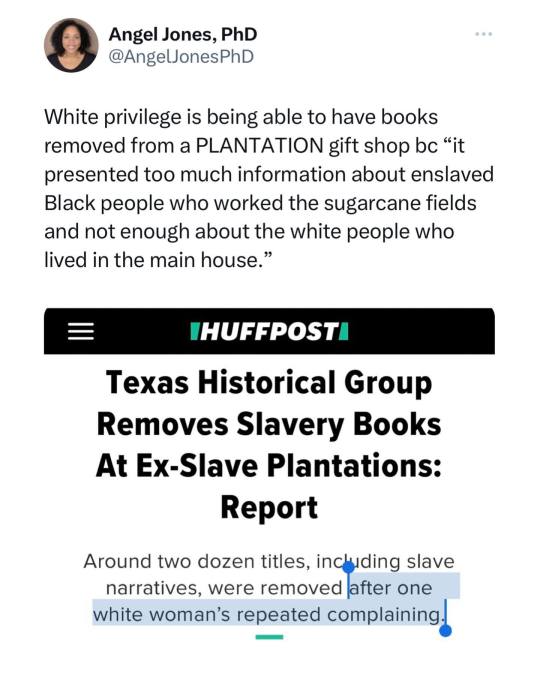

#white supremacy#racism#social justice#equality#end hate#anti-racism#racial equality#stop racism#no to hate#dismantle racism#alwaysbewoke
2K notes
·
View notes
Text
Bah. Whatever. I can't let myself sit on this wondering what I did wrong, because from what I can tell, it's largely just a misunderstanding in regards to perspectives of a certain character.
It just kind of sucks that it happened without warning and without any ability to know what I did that the people who blocked me disagreed with is all, I guess.
Even if Clotted Cream were racist, I'm not apologetic for speaking up in his defense. The entirety of my defense had nothing to do with defending racism or classism and was instead targeted very specifically and obviously to Clotted Cream's abusive upbringing under Custard, and it happened before any indication of him being classist at any point became canon in the first place. I don't mean to defend racism or classism by any means, but it's very important to recognize that you can defend somebody for one situation that they are in while not necessarily agreeing with their other opinions.
If Clotted Cream were outright racist, it wouldn't take away from the fact that he grew up in an abusive household that placed a lot of pressure on his shoulders. Since he isn't outright racist and is moreso classist, the connection can be made between that classist mindset being something he learned while under the care of Custard. That classism would then be understandable, and that would make him understandable as a character but ultimately less sympathetic if he never learned that this bias was wrong.
However, from what I've heard, he does eventually come to realize that this perspective is wrong. And when he realizes that it's wrong, he starts to actively work on changing that bias. If the racism accusation is pinned on him because of his initial classist views, then the fact that he decides to actively work on changing this bias is incredibly important to acknowledge as well.
People change and their perspectives change. The fact that Clotted Cream ends up having a character arc where he's faced with his biases and works through it is one of the themes of his character, and to immediately label him as 'racist' when he's attempting to adjust his perspective implies that people in real life who are actively trying to work through their own racism are not worthy of even being given the opportunity.
There's literally nothing wrong with a racist trying not to be a racist, is what I mean. If Clotted continued along with the classist/racist perspective in spite of being shown it to be wrong, then that accusation would hold more water. But it seems rather disingenuous to his character to acknowledge that getting through those biases is likely as integral to his character development as his situation with Custard.
That said, if somebody has been racist in the past and is actively working on changing themself, the people who have been affected by their racism have every right to still not associate with that person. Changing their ways doesn't stop the hurt that they have felt--but it does stop the hurt that they will inflict on others in the future.
People change and develop over time, and there are people who have had problematic perspectives in the past who are actively working on self-improving and disassociating from those notions. I feel like in regards to Clotted's classism, this is a case where he's actively coming to disassemble that classism from his mind.
Basically, me defending Clotted for being in an abusive household that's likely given him a lot of mental trauma and stress is not in any way meant to excuse any racism or classism that Clotted may have. I wouldn't defend Clotted if he were continually classist or racist other than to say that the classism likey came from how he was raised and the racism stems from the classism. However, if Clotted really is working on self-improvement and dismantling those biases he has, I believe that it should be acknowledged at the very least that he is willing to learn how to be better.
This is a ramble. I am rambling. Whee.
#tw: racism mention#tw: abuse mention#not sure if I'm wording this well enough or not#morality is not black and white guys how many times do i have to day that#it's important to look at both the good and the bad of characters to recognize the patterns that are echoed#in real life#the fact that clotted is willing to change says a lot more about his character than some might think#and it echoes people who have been raised to believe one thing but eventually come to realize#that what they learned isn't right and instead of continuing to follow those teachings#they work to dismantle and rebuild their beliefs from scratch#and that takes time and doesn't just happen overnight#but if that same person continues to blindly follow those beliefs then they're just a dick
35 notes
·
View notes
Text
No, that is not a utopia, that is a dystopia you spray-painted gold. Throw it out, try again.
#Jesus the point of utopias is that they be challenged not dismantled#‘oh wow no one is starving or being discriminated against but also bad emotion stuff and the government outlawed names’#‘clearly these two things are connected so we gotta throw out the baby with the bath water here’#‘sorry guys poverty and racism are Just The Way Things Are and getting rid of them makes society worse’
19 notes
·
View notes
Text
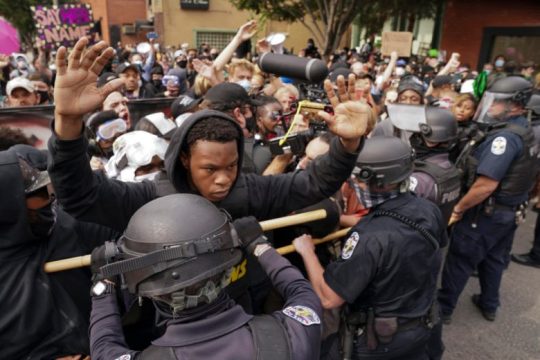
Listen to this article here
Geneva – On Monday the UN High Commissioner for Human Rights, Michelle Bachelet, issued an urgent call for States to adopt a “transformative agenda” to uproot systemic racism. She published a report casting a spotlight on the litany of violations of economic, social, cultural, civil and political rights suffered by people of African descent – on a daily basis and across different States and jurisdictions.
The report states that the worldwide mobilization of people calling for racial justice has forced a long-delayed reckoning with racism and shifted debates towards a focus on the systemic nature of racism and the institutions that perpetuate it.
“We examined deaths at the hands of law enforcement officials in different countries with varying legal systems, and found striking similarities and patterns. Several families described to me the agony they faced in pursuing truth, justice and redress – and the distressing presumption that their loved ones somehow ‘deserved it’. It is disheartening that the system is not stepping up to support them. This must change.”
Report highlights “compounding inequalities”
The UN Human Rights Office was mandated in June 2020 – in the wake of the murder of George Floyd in the United States – to produce a comprehensive report on systemic racism, violations of international human rights law against Africans and people of African descent by law enforcement agencies, government responses to anti-racism peaceful protests, as well as accountability and redress for victims.
The analysis carried out by the office is based on online consultations with over 340 individuals, mostly of African descent; over 110 written contributions, including with States; on a review of publicly available material; and on additional consultations with relevant experts.
The report details the “compounding inequalities” and “stark socioeconomic and political marginalization” that afflict people of African descent in many States. Across numerous countries, most notably in North and South America and in Europe, people of African descent disproportionately live in poverty and face serious barriers in accessing their rights to education, healthcare, employment, adequate housing and clean water, as well as to political participation, and other fundamental human rights.
To read the full release from the UN High Commissioner, Click Here.
#United Nations calls on member states to “start dismantling” racism#racism#un#systemic racism#Black LIves Matter
5 notes
·
View notes
Text
pointing at a sign that says: just because mhy writes the desert people as being discrimated against does not mean it’s okay for you to portray someone as cyno’s savior against discrimination
#the thing is it’s different than vent fics#writing these types of things is clearly reliant on this fantasy where you can ‘save’ someone from racism#and I don’t exactly blame the people doing this bc I know a lot of them are just kids#but it also makes me wanna shake you and be like#that’s not the problem!!!! the problem is a lot larger than that!!!!!!!#like even when you’re thinking abt the systems and how that has to be dismantled in sumeru#think abt why mhy wrote sumeru like this in the first place!#think abt where they failed and succeeded at writing their social commentary on race!#how does what they say vs what they do reveal things abt them as a company!#mhy criti#gi
5 notes
·
View notes